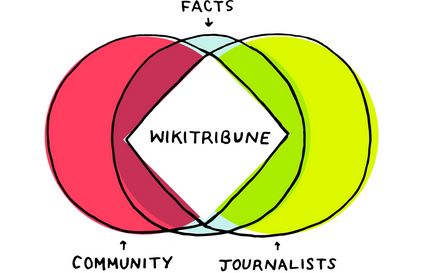 LSE’s Lee Edwards and Silas Scott look at Prince Andrew’s now infamous interview on the BBC’s Newsnight programme, and assess what went wrong from a strategic communications perspective.
LSE’s Lee Edwards and Silas Scott look at Prince Andrew’s now infamous interview on the BBC’s Newsnight programme, and assess what went wrong from a strategic communications perspective.
The scandal around Prince Andrew’s interview last week about his friendship with Jeffrey Epstein, a convicted sex offender, rolls on. In a world where news stories often disappear before we have time to even engage with them, this one has curious staying power.
Of course, news is driven by events, and since the interview, each day has seen a progression of announcements that give the media more to work with. First, there was the outraged reaction to the interview itself from commentators and the public alike. Next, Prince Andrew’s long-standing partnerships with various organisations started to crumble, as the public reaction to his appearance became clear. Then, the announcement from the palace that he was stepping back from public life (and the accompanying speculation about who had instigated that decision); followed after the weekend by the announcement that he was withdrawing from all 250 organisations with which he worked. Prince Charles’ return this week from an overseas trip provides a new focus on the family dynamics of a disgraced younger brother meeting his eldest sibling and future king.
The interview was designed to give Prince Andrew a platform from which he could safely engage with the scrutiny of his relationship with Epstein. However, it singularly failed to do this, for a number of reasons.
First, Prince Andrew committed a cardinal error of assuming that appearing in public, and particularly doing a media interview, was about him. It was not. Strategic communications must begin with the needs of the audience. Appearing in the media should be done if there are ‘unsettled matters’ to address: a need to address misperceptions, questions, confusion, or information deficits among people with whom one wants to have a relationship. In Prince Andrew’s interview, there was nothing to suggest that he had thought beyond his own need to tell his story. Rather, he exhibited self-interest through his lack of regret for his friendship with Epstein; lack of sympathy with the victims; reluctance to help proactively with the FBI investigation; and lack of clarity in response to almost every question he was asked. His answers were not only equivocal, but also patronising to the vast majority of viewers.
A second issue relates to the importance of the interview as a brand strategy and a contravention of the royal family’s ‘organisational culture’. In the past, the institution of the royal family has tended to operate a policy of silence with regard to accusations levelled against them, to avoid adding fuel to the fire and to protect the elite mystique of royal identity. Indeed, the rare occasions of royal honesty have always presented public relations problems – consider the interviews by Prince Charles and Princess Diana in 1995, or more recently, Meghan Markle’s interview about the British press and the stress of royal life. Nonetheless, and while Prince Andrew’s situation is obviously very different given the accusations levelled against him, perhaps his engagement was inspired by these previous attempts to shed light on royal reality.
This we do not know for sure, but what is clear is that Prince Andrew felt compelled to break the family norm of taking a step back, and letting accusations gradually pass out of the media spotlight. To compound the PR problem, he conducted an interview with the very experienced and respected journalist Emily Maitlis. In doing so, he revealed his inexperience in dealing with the gaze of an accomplished and insistent BBC journalist. For every question levelled at him, the crisis grew ever deeper for himself and those associated with him.
A third strategic error was to offer snippets of verifiable information throughout the interview. Investigative journalists and curious members of the public can easily find out whether he did actually know the Tramp nightclub, whether he can sweat, or whether he was at Pizza Express in Woking that evening with his two young daughters. Unsurprisingly, Sky News has already posted an appeal for information about Prince Andrew in Woking, while images of him perspiring are now widely circulating online. The result is a further loss of control: the media and the general public are now in the driving seat, in charge of the next stage in the story. This will serve him no favours in the long run.
There are other ways of dealing with such events. Pre-recorded messages, moderated question and answer sessions via social media platforms, and formal statements can all provide a contribution without necessarily compromising reputation. They give prior notice of questions and the opportunity to disregard those he knows he cannot answer in a way which will be received favourably. One assumes that his PR adviser, who resigned after the interview, thought that an alternative approach would have been more effective.
From a strategic communications perspective, the Prince’s interview is a valuable reminder that strategic communication is always about interactions with audiences, not one-way messaging. Organisations, whether the royal family or the local shop, can only ever be certain of one thing when they communicate: the meaning attached to their message is the result not only of the words they choose, but also of the audience’s interpretations of those words. Nothing is ever certain and meaning constantly emerges as stories evolve and interactions continue.
The backdrop to all this, of course, is the fact that in the UK media, nothing attracts public attention more than a royal scandal. And when that scandal means the brand of the House of Windsor itself has become so toxic that it is best abandoned, the untouchability of the royals is clearly a thing of the past. Their licence to operate no longer allows them to behave in ways that ignore wider social norms and moral expectations, but Prince Andrew’s interview illustrated how that understanding has yet to be fully assimilated by some members of the royal family. While the prince himself has now withdrawn from public life, we can be sure that this will not be the last we hear of this story.
This article represents the views of the authors, and not the position of the Media@LSE blog, nor of the London School of Economics and Political Science.







On the threat to the untouchability of the Royals, this has given journalists the opportunity to tell stories that reflect the unlikeability of Prince Andrew over the years where previously this was considered off limits. It also exposes the mechanisms behind media management by the House of Windsor. Further, the action questions the public position of his daughters; Beatrice’s wedding is being downplayed for example. However, in the longer term, it gives Prince Charles the chance to ‘rebrand’ the firm. It might even boost the reputation of Camilla Parker-Bowles as someone who steadfastly and uncomplainingly serves the public and obeys the rules, despite years of spiteful press.